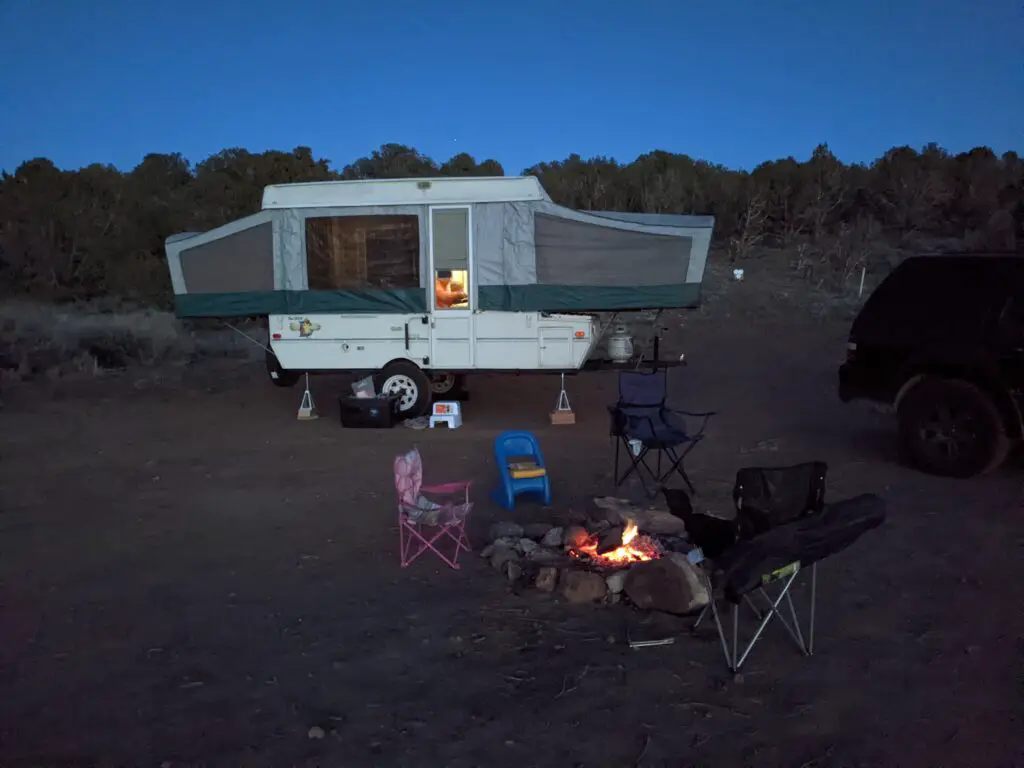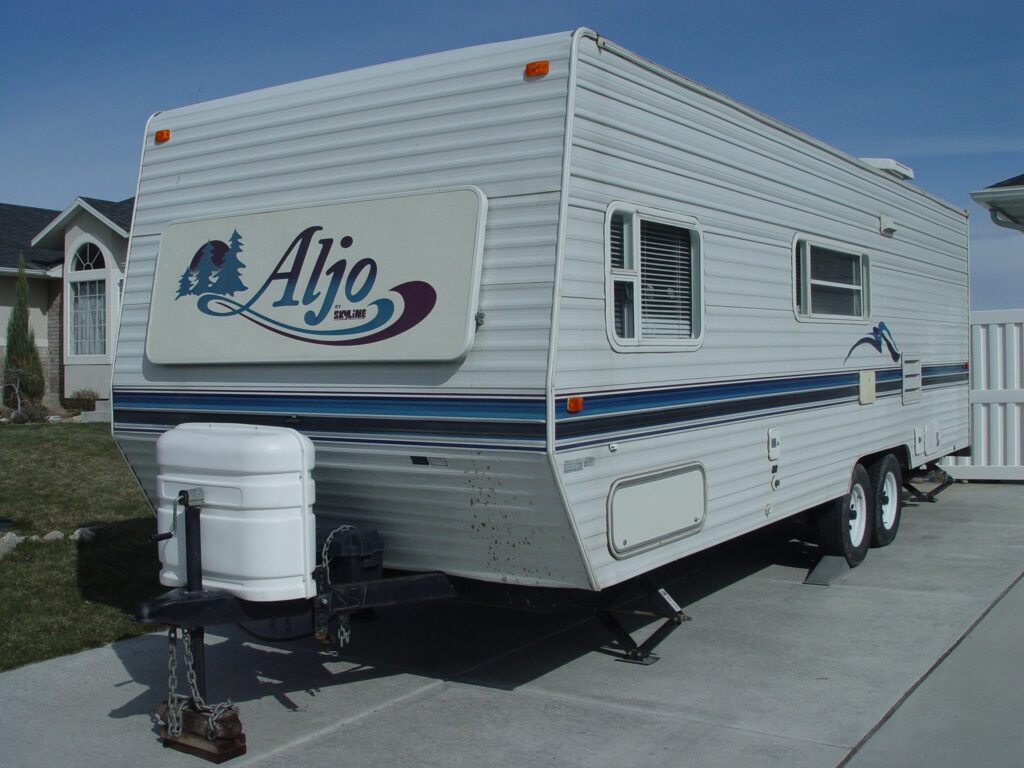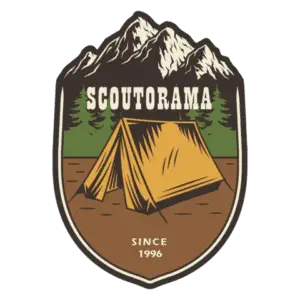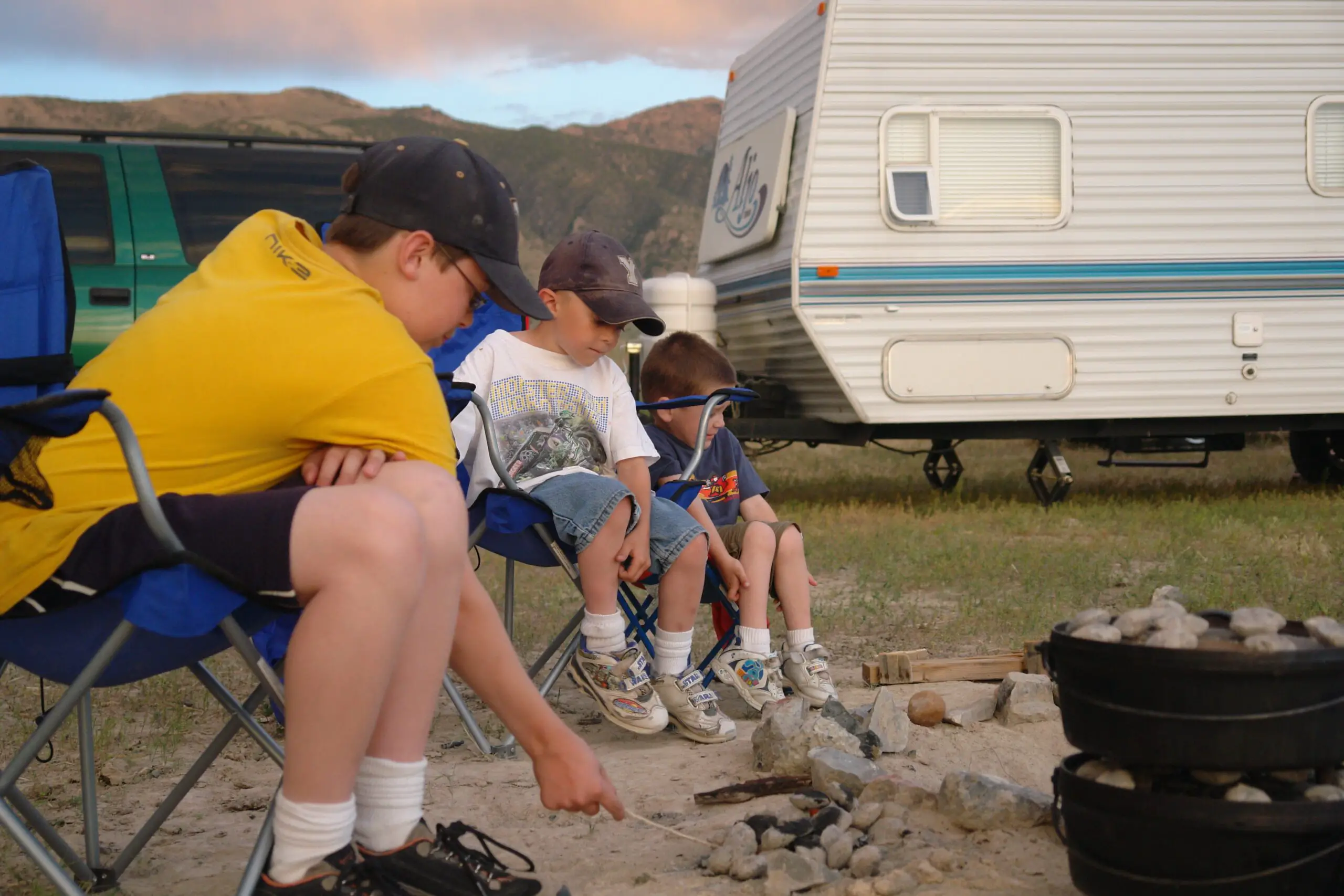Although camping is fun because of the extra thrill of having to enjoy Mother Nature, there is always the issue of security. The first concern is whether it is safe to live in one and safety concerns when one is towing it to their preferred location. Basically, camper trailers are safe because they have existed for many years. However, there are various things all camping enthusiasts must observe to enhance safety.
Camper trailers are safe as long as the campers are knowledgeable and prepared against common dangers they’re likely to face while camping or on the road. These dangers include breakdowns and getting stuck, wild animals, break-ins, electrical or propane problems, and traffic accidents.
In the article I discuss the overall safety of campers, safety concerns for towing a trailer, living in a camper, and tips for improving safety when camping with a trailer.
Are Camp Trailers Safe?
Camping, whether in a hundred thousand dollar RV or a twenty dollar tent from Walmart, can be as safe as you want it to be. Everyone has their own levels of comfort when it comes to risk taking and adventure, so you can really tailor it to your own risk appetite.
For example, you can camp in a travel trailer in a State Park where a ranger is a stone’s throw away if you get into trouble, or you can camp an hour off the main road in the middle of bear country. Even with the same equipment for each campsite, you’ll have a very different experience and different levels of safety.
As long as you know what to plan for, you can be safe in any situation. Store food in bear canisters while camping in bear country, dissuade would-be burglars when camping in seedy public areas, and be prepared or avoid emergency situations due to weather or breakdowns.
How to Keep Your Camper Trailer Safe
To help keep your trailer and possessions safe , consider the following tips:
, consider the following tips:
1. Observe Basic Security
Always lock your camper trailer and close the windows while you are away. Buy a padlock or replace your door handle with a key fob or keypad for enhanced convenience and security.
Many crimes are ‘crimes of opportunity’ where someone happens to see something valuable through a window or something left out. To reduce this risk, pull down the window shades to ensure no one can see the things inside your camper.
If you plan to leave your camper unattended while camping for a hike or ride or something, leave out some camping chairs and other low-value stuff so that it looks like you’re around or are close by. An occupied camper is rarely a target to thieves because the owners may be armed.
Buy a hitch lock (like this one ) and put it on your camper before leaving it anywhere. It’s far from a perfect deterrent, but does add an additional layer of security.
) and put it on your camper before leaving it anywhere. It’s far from a perfect deterrent, but does add an additional layer of security.
2. Learn to Tow Your Trailer Properly
They don’t teach you how to tow in driver’s ed in high school. The only way to really learn is to practice. Unless you’re a landscaper or carpet installer or something similar, you probably don’t tow very often.
It can be easy to miss a step when hitching up a camper, so I find it helpful to go through a checklist with each item-
- Remove the lock
- Lower onto the ball and raise the jack
- Secure the ball and pin
- Connect electrical
- Secure chains
- Pull and store the chocks
Give yourself plenty of space before changing lanes, and plenty of space to slow down. Make sure you don’t overestimate the ability of your vehicle. Following these steps, I included another section below with more helpful information for towing.
3. Allow the Camper to Vent
Most campers run on some sort of propane, unless you’re plugged into shore power at a campground. While running your fridge and hot water heater and stove with propane can be completely safe, you need to be aware of the potential for Carbon Monoxide Poisoning.
In addition to keeping a Carbon Monoxide detector in your camper, you should also open window vents whenever cooking or burning fuel. Pay attention for any fuel smell and take immediate action if you smell it.
Additionally, it’s important to let the camper air out after using it so that condensation and water inside doesn’t turn into mold. Mold in the walls could be undetectable and could make you very sick, as well as prematurely ruin your camper.

4. Check the Weather Forecast
A lot of camping is done up in the mountains (as it should be!). Up high in the Alpine though, weather patterns and systems develop much faster than they do down low, and can cause a lot of trouble for campers.
Torrents of rain can render a dirt road into a muddy trap in a few minutes. A nice weekend trip can become miserable with an early or late-season snowfall in a camper without heating. An unexpected heat wave can make sleeping in a barebones camper without AC a sweaty experience.
Checking the weather is important, but also keep in mind that the weather can change quickly so you do need to be prepared for anything that Mother Nature hurls at you.
5. Camp Around Other People
Your camper trailer will be more secure when you camp around other people. More people usually means more security. That way, you be relaxed even when you are away as your neighbors will be always on the lookout. Groups of people also tend to scare animals away.
If you pick up a flat tire or get stuck in the sand, a neighbor can help pull you out or run into town for a necessary supply run…unless you stay up late playing loud music. Then they’re likely to slash your tires (and you deserve it)!
If you’re like me though and go to the mountains to escape other people or you plan to be more remote where cell service isn’t an option, I highly recommend keeping a Satellite Communicator like the Garmin InReach (view on Amazon ). If you do get stuck or have an emergency, you can call in the cavalry even without a cell signal.
). If you do get stuck or have an emergency, you can call in the cavalry even without a cell signal.
If you’re really looking to get off the grid and get away from any roads, tent camping is a better choice. Check out my article, Why Tent Camping is the Best .
.
6. Install a Security System
Installing an appropriate security system is vital if you wish to keep your camper trailer safe. There are many options available in the market, and it is up to you to research and acquire an efficient one. For example, you can install solar-powered cameras, motion-detecting lights, or a deadbolt. Place the lights at the door, behind the camper, and at various corners.
7. Get a Safe
If you travel with valuable possessions like documents or gifts and jewelry, you can acquire a safe. This will make it hard for someone to access them in case they break in.
8. Park the Trailer Appropriately
Most people park their trailers on the driveway, with the hitch facing the road. Doing this makes it easier for thieves to pull in, hitch up, and drive away.
Instead, you can turn your trailer in such a way that the hitch is away from standard access. This makes it hard for potential thieves because they will first have to turn the trailer. A trailer dolly or jockey wheel can help you park this way as long as your camper isn’t too big.
Is Towing a Camper Trailer Safe?
Since most camper trailers are large (often much bigger than the towing vehicle) you need to be extra cautious when towing them on the open road. Failure to do this may result in a fatal accident that may harm you and other road users or destroy your trailer. The following tips will help tow your camper trailer safely ;
;
1. Have a Capable Tow Vehicle
Most trucks have the tow hitch, but this does not mean they have what it takes to tow your camper. Some seemingly capable trucks have low towing capacity. Before hooking up your trailer, research your truck’s towing capacity and evaluate whether it can sufficiently tow the entire weight of your trailer, including the things inside the trailer. Don’t forget to factor in the weight of the people in the car as well.
2. Pack Light
Make sure you do not pack a lot of heavy materials as this will significantly increase the total weight. For example, you don’t have to pack water and move around with it if you are camping in an area with a source of fresh water.
Take it easy on food, accessories, gear, and clothes because they may also reduce the living space. Packing light will help with gas mileage as well, which will hopefully reduce your costs for the trip.
3. Trailer Weight Distribution
Keep most of your belongings (60% or more) in the front end of your camper. This allows the trailer to run smoothly and helps keep it straight while on the road. When there is too much weight at the back, it becomes risky because the camper may sway off-road.
Some vehicle-trailer combinations require a sway control or weight distribution hitch. If in doubt, it makes sense to use one.
4. Brake Slowly
Do not brake abruptly because the trailer may skid and lose control. It is worth noting that you won’t have to slam on the brakes if you are driving slowly. But in case you do, don’t slam the brakes.
For extra precaution, trailer manufacturers ensure most trailers have electronic brakes. Check to ensure your camper is well-equipped.
5. Take it Slow
There is a lot of advice on how to tow your camper trailer, but one always stands out – always take in nice, easy and slow. The weight behind means everything takes longer – stopping, speeding up, and slowing down. There is no specific safe speed, but if you speed up, you may lose control of the trailer.
Take it slow, stick to your lane, and enjoy the view and scenery. After all, camping is all about adventure.

Is it Safe to Live in your Camper Trailer?
Living in a camper is generally pretty safe, as long as you take a few precautions and start out close to home or close to help. The biggest dangers are breaking down or getting stuck somewhere remote, rather than people’s biggest fears of wild animals or other humans.
Like every house or residence, you have to plan well if you wish to live in your camper trailer. Since you will be living outdoors, there are several things to consider to enhance safety. For example, you need to research the weather patterns of your preferred camping site, the terrain, and wild animals.
It is also worth noting that you will be isolated from the rest of the population. Consequently, resources such as medical facilities and first responders are limited or far away.
You, therefore, need to have an emergency plan. Always carry an emergency first aid kit , abundant medical supplies, and fire protection.
, abundant medical supplies, and fire protection.
Ensure you also have your phone and network boosters because you may be required to call for help in case of extreme cases. If you plan to be more remote where cell service isn’t an option, I highly recommend keeping a Satellite Communicator like the Garmin InReach (view on Amazon ).
).
Final Take
Are camper trailers safe? Yes, they are. However, it is your responsibility to enhance their safety by observing the above tips. In my opinion, the two most important tips are parking your trailer appropriately to prevent theft and knowing how to tow it without endangering yourself and other road users.
Related Questions
Do People Break Into Campers? Burglary from campers and RV’s is rare, likely because of the risk of armed owners nearby. Additionally, campers are unlikely to have valuables like jewelry or cash that a thief might be after.
Are Campers Easy to Steal? Someone with a truck can easily back up to a camper and hitch it up and drive away; however, it can be difficult for them to sell a stolen camper because most states require them to be registered. A simple hitch lock can reduce the risk of camper theft.
Why do Some RV’s have Two Locks? Some campers have two locks for added security. One functions as a deadbolt and one functions as a simple lock on the handle. Often these have different keys, which further enhances the security.
Do Travel Trailers Break Easily? Travel Trailers are made with lightweight components so they tow easier, but this can mean they break easier as well. The bigger the trailer, the more likely it is that something will break because there are more parts and features.

